6. Shattered (1991)
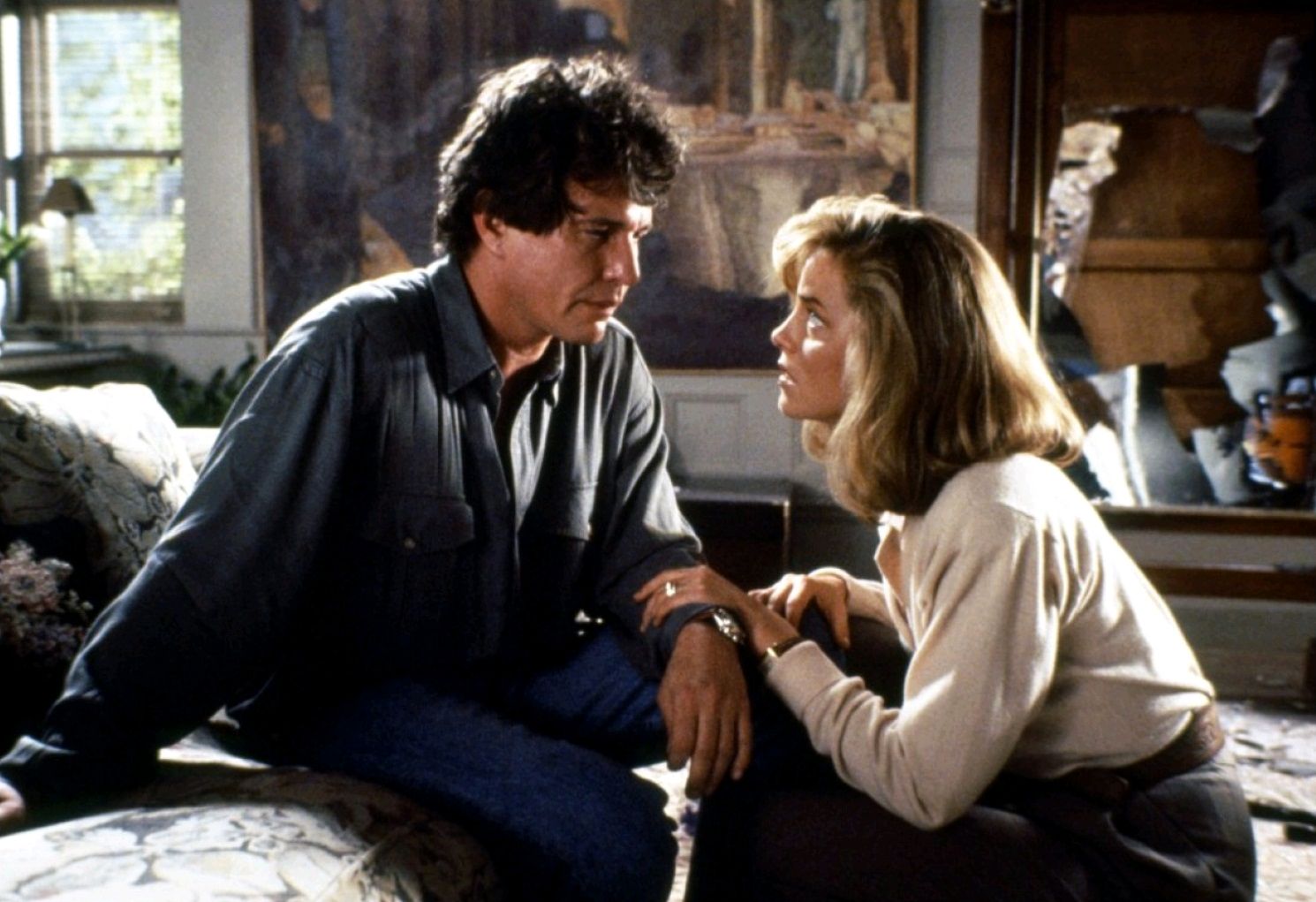
A horrific car crash leaves architect Dan Merrick (Tom Berenger) with amnesia. Badly injured and needing plastic surgery, Dan’s wife Judith (Greta Scacchi), who was also in the car, barely gets a scratch. So, Judith helps nurse her husband back to health, as Dan has problems piecing together his past life.
Dan tries his best to adjust to life after the crash, trying to get back to work and meeting with old friends. He has outbursts, like smashing mirrors with a large cane, and discovers his wife was having an affair with another man. Putting the pieces back in his messed up memory, Dan pairs up with Gus (Bob Hoskins), a pet shop owner/private investigator, who tries to shake some memories up for Dan.
Dan learns that Gus sent him incriminating photographs of his wife, Judith, with another man on the same day he had the horrific car crash. As clues begin to drop, Dan thinks about his horrific car crash, “She gets thrown out with hardly a scratch, and I wind up looking hamburger.”
Confusing Dan even more, there’s also another woman, Jenny (Joanne Whalley-Kilmer), who, like everyone else in the plot, knows more about Dan than Dan does. And so, it goes on and on, with the Film Noir-esque plotline unravelling before the rug finally gets pulled out from under you. Depending on how you feel, it’s either a preposterous twist or a very clever one.
Is it any good? Shattered focuses so much on the plot mechanics that it loses focus on the characters. The workman-like direction offered by Wolfgang Petersen includes repeated images of shattering glass and the image of crashing waves during a sex scene. If you were generous, you could call Shattered “Hitchcockian”; that is, if it were Hitchcock around the time, he made Torn Curtain and Topaz. Yet, despite its faults, Shattered is still a fun flick with a barmy plotline – a film that exists for a plot twist, that even if its hardest critic would admit, is unexpected and fun.
7. A Perfect Murder (1998)
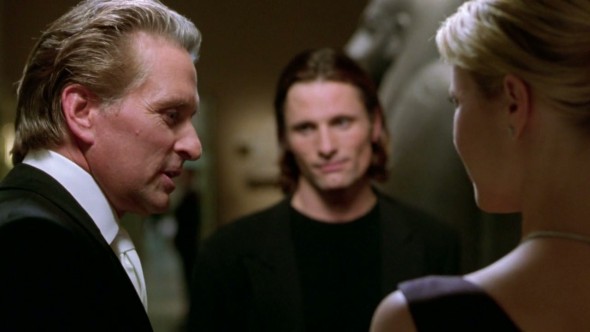
Another Hitchcock remake and another film where Michael Douglas plays a wealthy businessman -this time he’s Steven Taylor, a Wall Street financier who, like Ray Milland in Hitchcock’s original, has a blonde-haired wife he wants someone to murder.
Based on an original play by Frederick Knott, Dial M for Murder was Hitchcock’s original film, made back in the 50s. Forty years later, Andrew Davis, better known for action fare like Under Siege and The Fugitive, changes the confines of Hitchcock’s original chamber piece narrative, tearing down the walls of Hitchcock’s one-set masterpiece and successfully updating the plot for a modern audience.
The story begins with a steamy extramarital affair between Gwyneth Paltrow’s Emily and her not-so-secret lover David (Viggo Mortensen). Besides his wife’s infidelity, Steven Taylor’s (Michael Douglas) business empire is falling apart, with his wife’s millions the answer to his financial turmoil and a perfect excuse for her murder.
In an extra twist from Hitchcock’s original, Steven hires Emily’s lover, David, to kill his wife. David appears to be a gifted artist, but he also has secrets and another identity – He’s “pure trailer trash” who enjoys seducing wealthy women while stealing their riches. So, it’s a game between lover and husband, killer and blackmailer, and a trap for a perfect murder.
Michael Douglas could have played his role in his sleep and is the perfect linchpin for the plot to hang its familiar contrivances.
The gradual net closing around Douglas’s arrogant, scheming husband is well realised, leading to a pleasing climax. Viggo Mortensen adds good value as a two-faced lover, and David Suchet, famed for being the perfect Poirot, is well-cast as a police detective, even with little to no screen time.
There are plenty of familiar narrative twists and nods to the 1950s original, with director Andrew Davis lifting many tricks from Hitchcock’s’ playbook. Although not the perfect thriller, A Perfect Murder is a stylish 90s thriller with excellent pacing, a good story and solid performances.
8. Above Suspicion (1995)
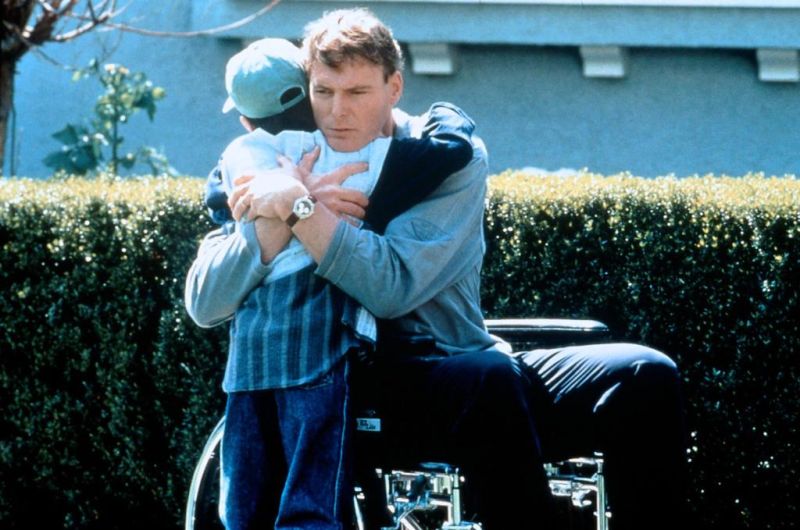
Dempsey Cain (Christopher Reeve) is a highly decorated police detective. Dempsey’s brother Nick (Edward Kerr) is also a cop, but not a very good one, and is also having an affair with Dempsey’s wife, Gail (Kim Cattrall).
Gunned down in the line of duty, Dempsey becomes paralysed from the waist down. His career with the police force is seemingly over, and aware that his wife is having an affair with his wayward brother, Dempsey decides to end his life.
Dempsey involves Nick and Gail in his scheme to end his life, or so it would seem, as there’s more to this thriller than meets the eye. Another plot thread concerns another cop on the force, Alan Rhinehart (Joe Mantegna), who is convinced that Dempsey is up to no good.
A game of cat and mouse between Dempsey and Rhinehart continues for most of the film’s second half, resulting in a riveting, albeit brief, courtroom battle.
In terms of his career as a movie star, after Superman IV: The Quest for Peace and Christopher Reeve’s heyday with the Man of Steel, his film career languished unfairly in several T.V. movies. Sure, there are exceptions: Street Smart, Switching Channels, a bit part in The Remains of the Day and a role in Peter Bogdanovich’s Noises Off. Above Suspicion is another exception; although made for the small screen, Above Suspicion is a tense and exciting thriller with Reeve turning in an excellent performance, proving, if ever needed, that there was more to the actor than just Superman.
Tragically and somewhat ironically, within a week of the premiere of Above Suspicion, Reeve would have a devastating fall. Thrown from a horse during an equestrian competition, Reeve would be left paralysed from the shoulders down for the remainder of his life.
In terms of the film, co-written by William H. Macy (Fargo, A Civil Action), Above Suspicion is a hidden gem, a surprising thriller with wonderful performances from Joe Mantegna, Kim Cattrall and Christopher Reeve.
9. The Crush (1993)
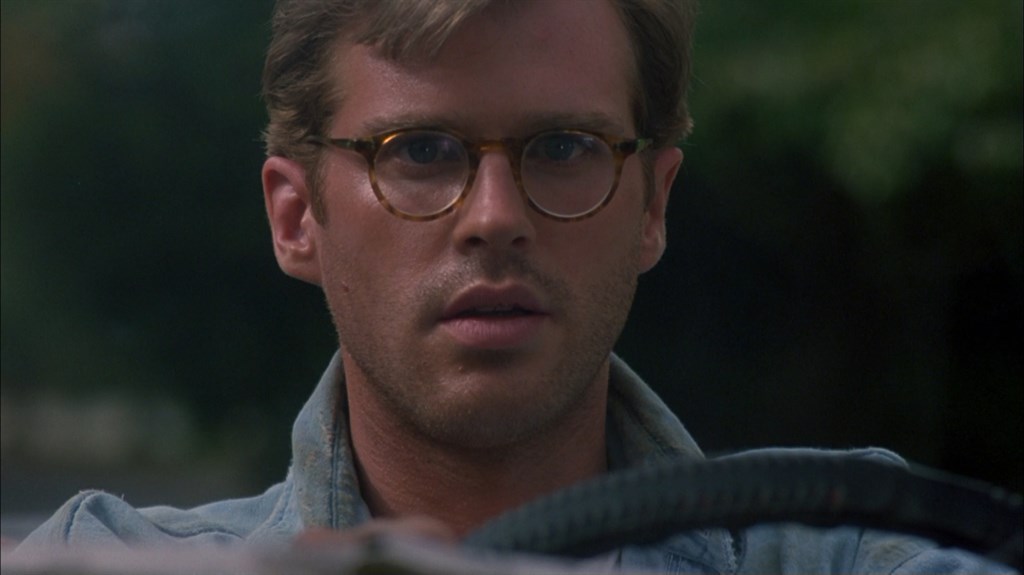
A few years before, she starred in cult favourite Clueless in 1995. Alicia Silverstone went full-blown Lolita in the psychological thriller The Crush.
Silverstone plays Adrian, a fourteen-year-old girl infatuated with Nick Eliot (Cary Elwes), a bespeckled twenty-eight-year-old magazine writer who rents a guesthouse next to Adrian’s home that she shares with her wealthy parents. Adrian becomes besotted by Nick, sitting with him at night as he bangs on about his new job.
Unbeknownst to Nick, Adrian has also snuck into his bedroom, opened his computer, and rewrote an article Nick had to do for work. Nick realises that Adrian rewrote the article, yet the rewrite helps Nick become popular with the angry boss at work.
At the weekend, Nick arrives at a party that Adrian’s parents are hosting, and Nick and Adrian share a kiss, which Nick regrets. Afterwards, much to the displeasure of Adrian, Nick begins a (age-appropriate) relationship with one of his co-workers, Amy (Jennifer Rubin).
So, Adrian turns up the crazy dial, becoming more obsessed with Nick. As you would expect from this tried and tested formula of cinematic obsession, Nick’s life spirals out of control just as the film runs out of ideas.
Released in the early 1990s, around the time of Poison Ivy and The Hand that Rocks the Cradle, The Crush is in similar territory. Writer-director Alan Shapiro based much of the film on his personal experience. However, the person on whom Shapiro based Alicia Silverstone’s character on sued him for using her real name, Darian, in the film’s original cut. So, in the dubbing, the character’s name was changed from Darian to Adrian, which is evident when seeing the movie today.
As for the film, watching it today, The Crush still stands up as a decent thriller. Although post the MeToo movement, portions of the film feel awkward to sit through, like Nick hiding in Adrian’s bedroom closet, watching her undress, with much of the characterisations and narrative tone of The Crush seeming somewhat inappropriate.
Given the antiquated themes and the ensuing lawsuit, where the director got sued for using someone’s name, The Crush has undoubtedly become a cult film – A movie of its time, but one that remains popular.
10. Blue Ice (1992)
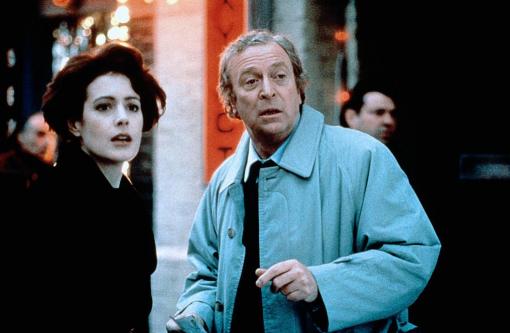
At Tower Bridge in London, a photographer snaps shipping containers as an ex-spy attends a funeral. The ex-spy is Harry Anders (Michael Caine), who owns a jazz club amid the peepshows and strip joints in London’s Soho – Imagine a downmarket Ronnie Scott’s, where Harry gets to play Humphrey Bogart.
Stacy (Sean Young), the wife of an American ambassador, crashes her car into the back of Harry’s car – she drives off with Harry in hot pursuit. After a night at the opera and a few drinks, a sexy saxophone on the soundtrack tells us that a love affair between the two will drag the film down for ten minutes. With Harry under her skin, Stacy asks Harry to locate her ex-lover.
Harry is reluctant but agrees, but as he finds the missing man with a bullet in his head, things turn sour when Harry finds himself caught up in international intrigue amid double-crossing spooks and illegal arms deals.
Directed by Russell Mulcahy (Highlander, Ricochet), the action is your standard share of low-budget shootouts, explosions and chases. However, there’s a fantastic torture scene where Harry gets quizzed by spooks on what he knows; multiple Harrys scream and shoot at one another as Russell Mulcahy relies on his past music video skills to create a memorable sequence.
The supporting cast is good, too; Bob Hoskins turns up firing a machine gun in a surprising cameo as one of Harry’s old pals, with Ian Holm as an old spymaster and Alun Armstrong popping us as a bent copper.
Michael Caine is well cast as an ex-spy, with his career now leaning towards his transitional phase of switching from Hollywood leading man to reliable character actor. Although in Blue Ice, Caine may as well be an older Harry Palmer, only with contact lenses and a submachine gun.
The guff with shipment containers and shady spooks does pay off, but it’s a narrative where you can see all the moving parts. Despite its faults, Blue Ice still has plenty of familiar tropes to keep you entertained and a winning performance by Michael Caine.